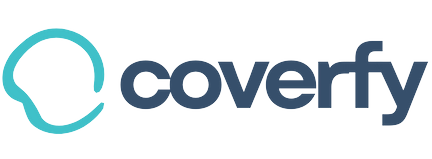
Boosting Whānau Financial Wellbeing NZ: A Guide to iwi hapū Scholarship Finance, Kāinga Scholarship Insurance & Culturally Responsive Financial Advice
Estimated Reading Time: 7 minutes
Key Takeaways
- Scholarships and insurance strengthen whānau resilience.
- iwi hapū scholarships support tertiary and secondary education.
- Kāinga scholarship insurance covers study costs and unexpected disruptions.
- Culturally responsive financial advice aligns with tikanga and collective values.
- An integrated approach—scholarships, insurance, and tailored advice—fosters sustainable financial wellbeing.
Table of Contents
- Introduction
- Defining Whānau Financial Wellbeing in Aotearoa
- The Rising Cost of Living & Insurance Gaps
- iwi hapū Scholarship Finance in NZ
- Navigating Kāinga Scholarship Insurance in NZ
- Culturally Responsive Financial Advice NZ
- Integrating Supports for Holistic Whānau Wellbeing
- Conclusion & Next Steps
Introduction
Whānau financial wellbeing in NZ is essential for uplifting Māori and wider communities. Financial security not only meets immediate needs but also builds resilience for the future. Through holistic support—such as scholarships, insurance, and tailored financial advice—whānau can reduce cost pressures and seize opportunities to thrive. Key resources include the Massey longitudinal study on resilience and the Sorted in Schools health resource.
Defining Whānau Financial Wellbeing in Aotearoa
Whānau Financial Wellbeing NZ refers to having the confidence, security, and control needed to manage daily needs, respond to shocks, and plan for the future. Framed within a Māori context, it considers:
- Income Security: Ensuring stable earnings and cultivating emergency savings.
- Educational Opportunity: Accessing learning resources and scholarships to further education.
- Cultural Identity: Preserving te reo and tikanga by utilising financial means.
- Social Support and Connectedness: Valuing collective whānau obligations and strengthening networks.
Targeted supports, such as scholarships and insurance, are crucial for building resilience. Studies like the Massey longitudinal study, the Sorted in Schools resource, and the Retirement Commission whitepaper underscore the impact of holistic financial support.
The Rising Cost of Living & Insurance Gaps
New Zealand families face increasing cost-of-living pressures due to rising housing, food, transport, and utility costs. These pressures often lead to cutting expenses, including essential protections like insurance. The MSD financial capability report highlights these trends.
When budgets tighten, life, health (private health insurance NZ comparison) or income protection (income protection insurance NZ comparison) policies can lapse, increasing financial vulnerability. Early cost-of-living insurance advice involves tailored guidance to prioritize essential coverage, manage premiums, and protect whānau assets.
iwi hapū Scholarship Finance in NZ
iwi hapū scholarship finance NZ supports Māori students in secondary and tertiary education through programmes provided by iwi and hapū for registered members.
Key Aspects
- Eligibility: Proof of iwi/hapū membership, academic or personal achievements, and enrolment status.
- Application Timelines: Open late summer/autumn, aligning with academic cycles.
- Success Stories: Scholarships can break cycles of disadvantage and cultivate community leadership.
Tips for Applicants
- Engage early with iwi/hapū education coordinators.
- Prepare proof of descent, academic records, and financial need statements.
- Seek support from school Māori liaison officers.
Navigating Kāinga Scholarship Insurance in NZ
Kāinga scholarship insurance NZ covers study costs and provides protection against disruptions due to illness, bereavement, or financial hardship.
Key Features
- Providers: Iwi trusts and major insurers offering Māori-focused products.
- Coverage Scope:
- Tuition and compulsory fees.
- Essential living costs (rent, transport, food).
- Emergency funds for interruptions (health events, bereavement).
Application Steps
- Check eligibility (Māori descent, enrolment proof).
- Gather documents (ID, study confirmation, financial statements).
- Complete applications by the provider’s deadline.
- Follow up with a case manager or iwi contact.
Kāinga scholarship insurance often goes beyond standard policies by offering cultural and pastoral support, engaging whānau, and tailoring claim processes.
Culturally Responsive Financial Advice NZ
Culturally responsive financial advice NZ aligns guidance with tikanga and whānau values, catering specifically to Māori and Pasifika communities.
Services Offered
- Holistic budgeting and savings plans.
- Debt management that respects whānau obligations.
- Risk protection strategies, including insurance selections like hospital cover vs day-to-day cover and critical illness cover.
- Assistance with scholarship and grant applications.
Finding Advisors
- MSD-funded community financial capability providers. See the welcome guide for providers.
- Iwi social service centres and Māori business networks.
- Specialised health insurance advice: Health Insurance Brokers Auckland.
- Resources from Sorted in Schools.
Advisors honour whanaungatanga, engage in collective decision-making, and respect cultural identity, ensuring advice is personalised and culturally appropriate.
Integrating Supports for Holistic Whānau Wellbeing
Combining various supports creates a robust framework for enhancing whānau financial wellbeing. Key steps include:
Action Plan
- Map Whānau Needs: Establish education goals, living costs, and risk exposures.
- Contact Providers: Engage iwi/hapū and insurance entities; note deadlines and eligibility.
- Meet with Advisors: Schedule consultations with culturally responsive financial advisors.
- Build a Budget: Utilize templates accounting for income, expenses, premiums, scholarship funding, and savings.
- Maintain Document Checklists & Timelines: Include ID, proof of study, membership, and bank statements.
Conclusion & Next Steps
Integrating scholarships, insurance, and culturally tailored financial advice tremendously enhances whānau financial wellbeing in NZ. Readers are encouraged to map their specific needs, engage knowledgeable advisors, and initiate scholarship and insurance applications. For more guidance, explore:
Coverfy provides tailored, culturally sensitive insurance advice and support for Kiwis seeking to enhance their financial security and cultural continuity. Visit Coverfy for more information on how we can help.
FAQ
What is iwi hapū scholarship finance?
iwi hapū scholarship finance refers to funding programmes offered by iwi and hapū to support Māori students in secondary and tertiary education, based on membership, merit, and need.
How does Kāinga scholarship insurance work?
Kāinga scholarship insurance covers tuition, living costs, and emergencies due to illness, bereavement, or financial hardship, with additional cultural and pastoral support.
Why is culturally responsive financial advice important?
Culturally responsive advice aligns financial strategies with tikanga and whānau values, ensuring decisions respect collective obligations and cultural identity.
How can whānau integrate these supports?
Whānau can integrate supports by mapping their needs, contacting providers early, consulting culturally responsive advisors, and maintaining budgets and document checklists.
